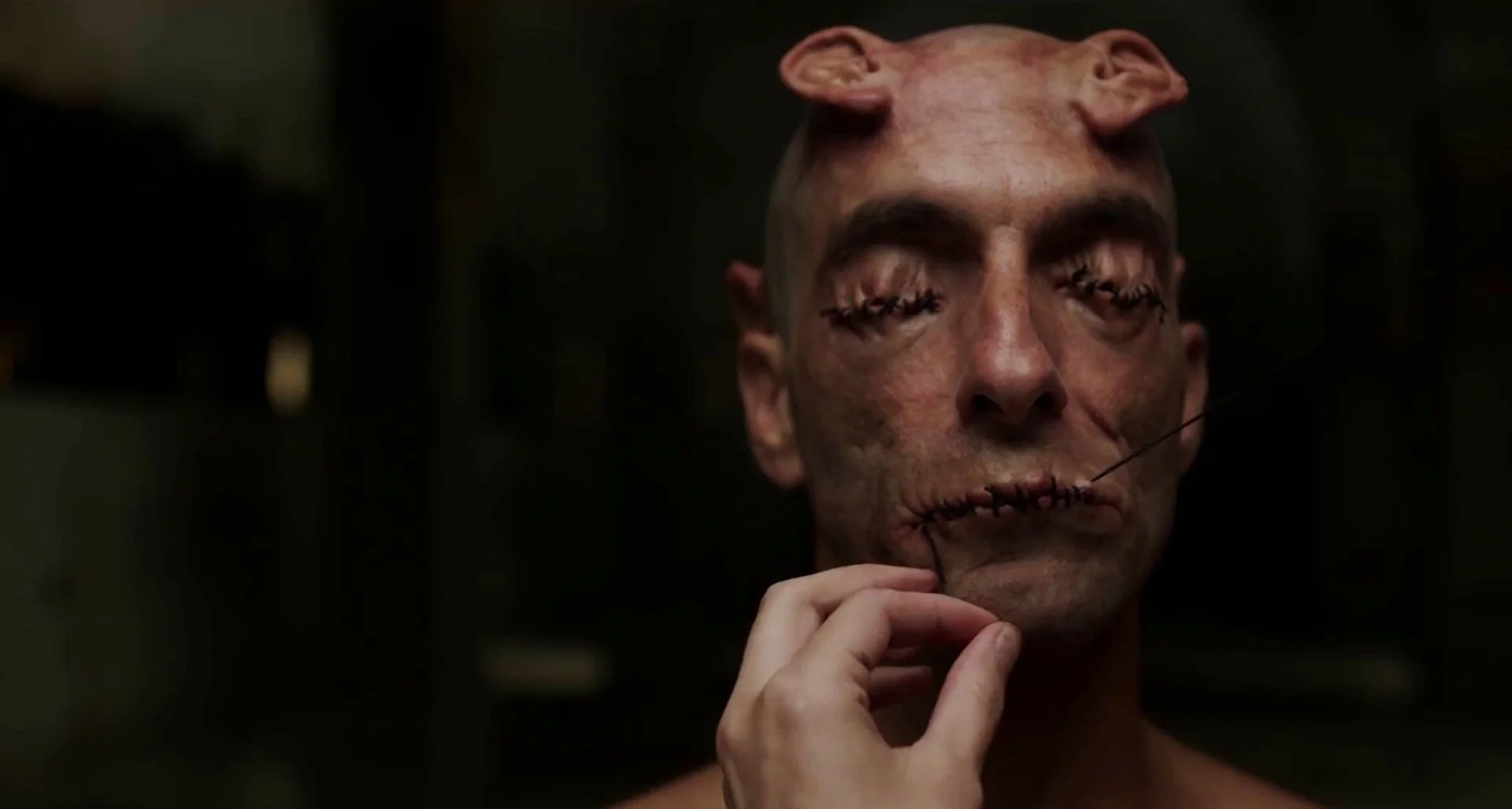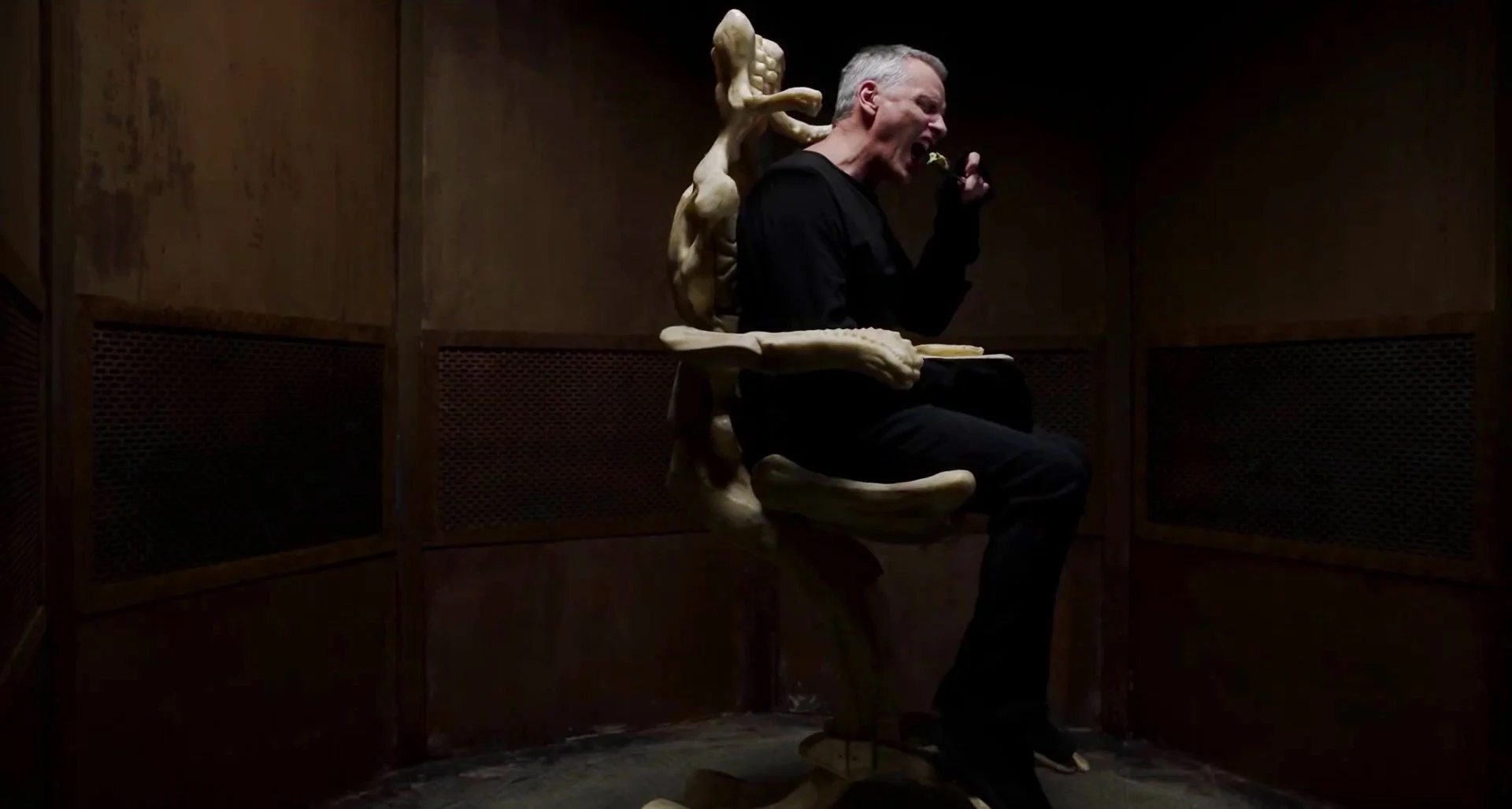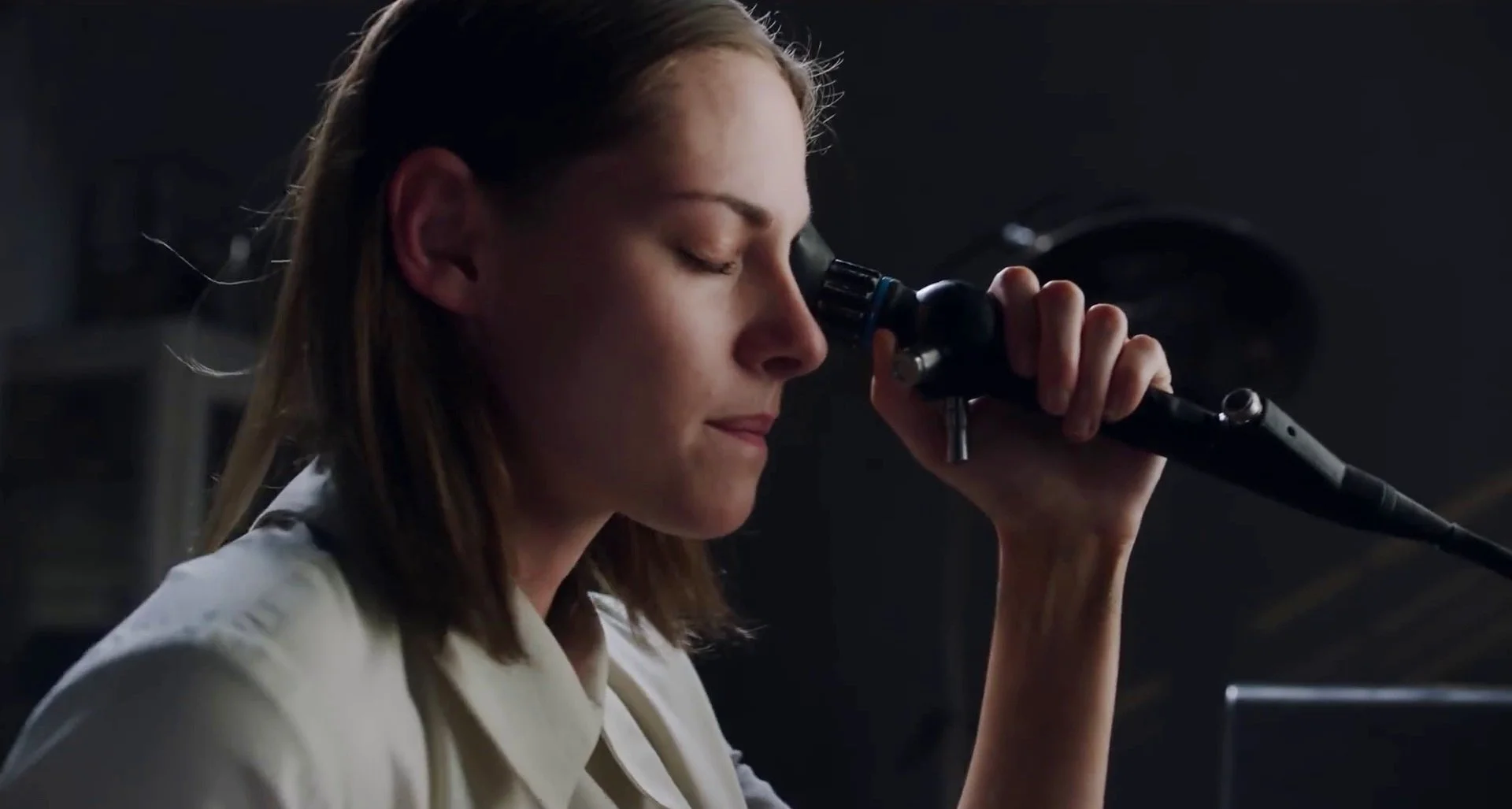Crimes of the Future (dir. David Cronenberg, 2022) — Review
David Cronenberg's nasty, nasty piece of work was fomented a good two decades ago; depressingly, the auteur's trademark shock tactics have matured, like a fine wine, into a domesticated serving of middle-class hedonism.
Crimes of the Future promises so much: a splashy body horror, with Kristen Stewart and Léa Seydoux capering ominously around a prone, lumpy Viggo Mortensen in a dystopian techno-Botox hellscape. And yet, all these sinister devices — the instruments of a future with which Cronenberg once stirred up so much juicy moral panic — seem weirdly defanged. With none of the plotlines in an operatic drama fully developed, the result seems slightly lost. In a world where pain has no meaning, Cronenberg’s dicing and slicing (physical and emotional) somehow struggles to land.
Cronenberg’s film picks up the title of his 1970 work, with none of the plot points — just the thematic fixation with a synthetic future, where the human body wages war against itself in a deeply unnatural environment. Crimes of the Future has a ripe fascination with animal instinct. In a not-too-distant future where climate change and environmental pollution have reshaped the human body, pain and infectious disease no longer exist in a meaningful way. Humans can grow new organs, eat plastic, consume toxic waste: but these capacities are kept under a watchful eye by the government. ‘Surgery,’ as Kristen Stewart’s character puts it, ‘is the new sex.’
Saul Tenser (Mortensen) and his partner Caprice (Seydoux) are celebrated performance artists: their act revolves around Tenser’s ‘accelerated evolution syndrome’, a condition which causes him to constantly grow new organs while struggling to eat or breathe. Caprice helps to manage his conditions, aided by an artillery of biomechanical devices, including a bed, chair, and surgical panel through which she tattoos his freshly sprouted viscera.
This new frontier of human evolution is administered by the National Organ Registry, a bureaucratic body whose representatives Timlin (Stewart) and Wippet (Dom McKellar) enlist Tensar to inflitrate an ‘evolutionist’ cell. Triggered by a child chowing down on a plastic bin, Tensar and his performance art cronies open a window onto the worst instincts of public and private society.
It’s hard to assess exactly why this doesn’t feel like a ‘proper’ Cronenberg film: but a start would be the civilized nature of its body horror. A reflection of contemporary society as much as the world which the director presents, a nightmare vision of ubiquitous surgery seems — perhaps intentionally — somewhat mundane. Given the speed at which painful, invasive cosmetic surgeries have become a matter of Instagram fact, Cronenberg’s premise of shrugging, fetishized disfigurement seems all too plausible. Impressive, though, given that he cooked it up over 20 years ago.
More compelling is Cronenberg’s interrogation of this disrupted physicality’s effect on social ties. Timlin — ‘attractive, in a rather bureaucratic kind of way’ — cannot arouse Tenser despite her most enthusiastic, and neurotic efforts: he’s ‘no good at the old kind of sex.’ He and his partner Caprice — who consummate their bond in a memorable scene where she unzips the skin of his abdomen and goes full glory-hole on his newest organ — share a horrid but oddly warm bond.
Even more dishearteningly, Cronenberg himself observed that nobody ‘was talking about microplastics when (he) wrote the script… and (they’re) in the body of around 80% of the people on earth now, and strangely the body seems to tolerate it rather well.’ The radical, eerie solution he sought to offer — that climate change and pollution should not be ‘fixed’, but adapted as a practical source of nutrition — seems far less shocking and dystopian than he’d originally imagined. The same goes for almost all the film’s plot elements.





